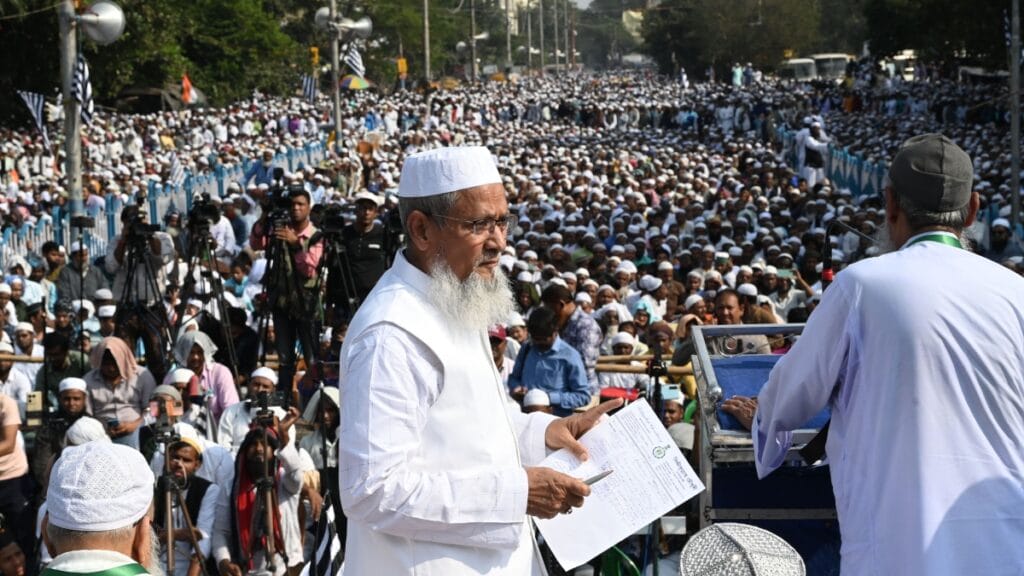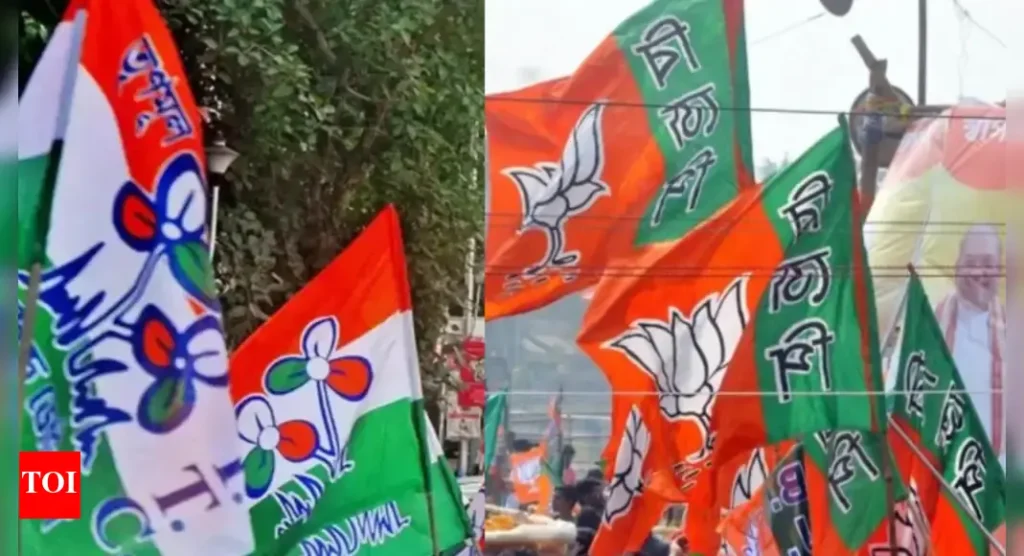The recent passage of the Waqf (Amendment) Bill, 2024, has ignited significant political unrest in West Bengal, with widespread protests and accusations of communal polarization. The Indian National Congress has accused both the ruling Trinamool Congress (TMC) and the Bharatiya Janata Party (BJP) of exploiting the situation to polarize voters ahead of the upcoming assembly elections.

Background of the Waqf (Amendment) Bill, 2024
The Waqf (Amendment) Bill, 2024, aims to amend the Waqf Act of 1995 to enhance transparency and accountability in the management of Waqf properties. It includes provisions for the mandatory inclusion of women in Waqf Boards and seeks to streamline their functioning. Introduced in the Lok Sabha on August 8, 2024, the bill was referred to a Joint Parliamentary Committee for examination.
Protests and Political Reactions
The bill’s introduction has led to widespread protests, particularly among Muslim organizations in Kolkata. Groups such as the All India Muslim Personal Law Board and the Joint Forum for Waqf Protection have organized rallies, claiming the bill is a direct attack on their faith and community.

West Bengal Chief Minister Mamata Banerjee has criticized the BJP-led central government for not consulting states before introducing the bill, accusing it of targeting Muslims and undermining the federal structure. She questioned why similar scrutiny isn’t applied to properties of other religious trusts.
Congress Accuses TMC and BJP of Polarization
West Bengal Congress President Subhankar Sarkar has accused both the TMC and BJP of using the Waqf bill protests to polarize voters ahead of the assembly elections. He alleges that the violence distracts from the Supreme Court’s annulment of 26,000 teacher appointments, a decision that should have prompted Mamata Banerjee’s resignation. Sarkar urges peace and communal harmony amid the unrest.

Implications for West Bengal Politics
The controversy surrounding the Waqf (Amendment) Bill has intensified political tensions in West Bengal. The Congress party’s allegations suggest a strategic use of communal issues by both the TMC and BJP to consolidate their respective vote banks. This situation underscores the complex interplay of religion and politics in the state, raising concerns about the potential impact on communal harmony and the democratic process.
Conclusion
The Waqf (Amendment) Bill, 2024, has become a focal point of political contention in West Bengal, with significant implications for communal relations and electoral politics. As protests continue and political parties position themselves on this issue, the need for dialogue and inclusive policymaking becomes increasingly evident to address the concerns of all stakeholders and maintain social cohesion.